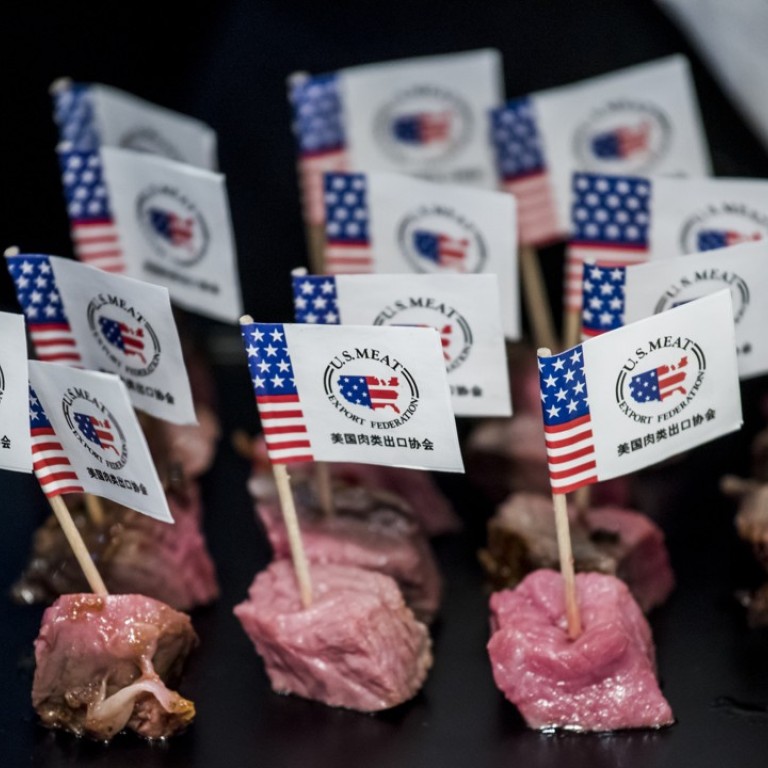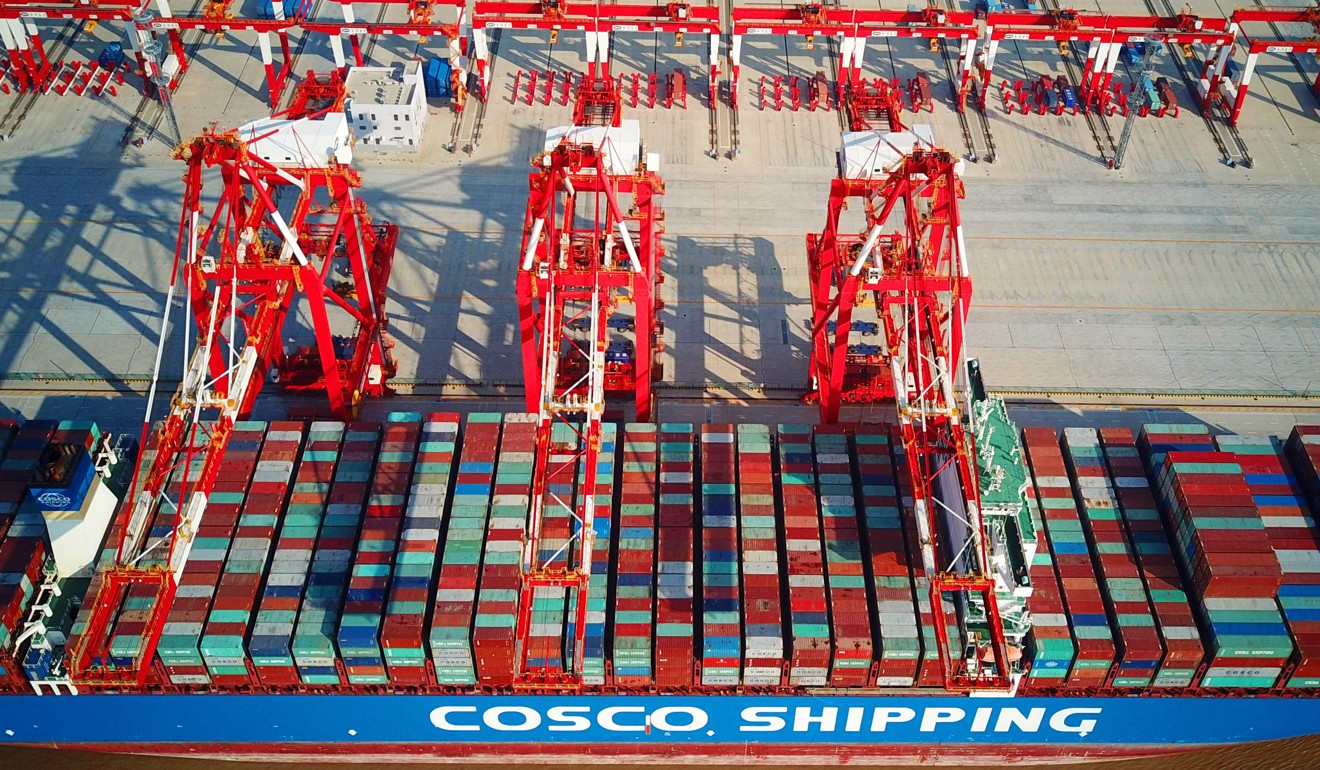
Agriculture, shipping and energy firms set to gain most from the US-China trade truce
The truce in the US-China trade war is set to benefit the agriculture and energy sectors because of China’s commitment to significantly increase related imports from the US, say analysts. Shipping companies and port operators are also likely to profit from stronger freight demand and trade flows.
Following two days of intense talks in Washington, the two biggest economies in the world have agreed on “meaningful increases” in US agriculture and energy exports to China, with details to be worked out later, according to a joint statement by Beijing and Washington over the weekend.
“We estimate China could increase goods imports from the US by US$60 billion to US$90 billion, with a rise in agricultural imports in the near term, followed by energy, and then non high-tech manufactured goods,” said Morgan Stanley analysts in a research note.
In agriculture, US beef could be a key beneficiary as Chinese consumers will probably opt for foreign, protein-rich meat as part of a broader “consumption upgrade” in which an increasingly wealthy middle class are tending to buy better quality products from abroad. China’s share of US beef exports was a mere 0.3 per cent last year.
There might also be room for bigger Chinese imports of cereals like corn and wheat, sorghum, fruit and nuts, and dairy products from the US.

On the energy front, China may primarily increase imports of American liquefied natural gas (LNG) products by US$9 billion, while the amount could be even larger if the US can resolve its logistics bottleneck, the analysts estimated.
In manufacturing, China is likely to increase imports of chemicals, aerospace and non-electrical machinery from the US, as they are the key product areas in which the US enjoys a comparative advantage, while their export share to China is still relatively small.
It may take two to three years for China’s US$60 to US$90 billion in incremental purchases to materialise,they added.
Credit Suisse, meanwhile, also believes oil, natural gas and agricultural companies can profit from the trade agreement between the US and China.
Hong Kong-listed WH Group, China’s biggest importer of American pork, will be one of the beneficiaries, the analysts said. WH Group acquired Virginia-based Smithfield Foods in 2013.
Credit Suisse gave WH Group a target price of HK$11.9, implying a 35 per cent increase from Monday’s closing price of HK$8.82.
Shenzhen-listed Henan Shuanghui Investment and Development, which WH Group owns, will also benefit, with a target price of 29.6 yuan, up 9 per cent from its Monday close of 27.08 yuan.
Other companies singled out by Credit Suisse include Cnooc, China’s largest offshore oil producer, and various subsidiaries of oil and gas giant Sinopec.
Shipping companies, in particular dry bulk carriers that transport agricultural products, are likely to see their stock prices rise because China has committed to increase imports from the US, Morgan Stanley analysts said in a separate report.
The investment bank is positive on the outlook for dry bulk carriers.
China International Capital Corp, one of the country’s largest investment banks, is upbeat on both the shipping and port sectors, which could receive a boost from stronger trade flows between the US and China.
It favours SITC International, a Hong Kong-based container-shipping company, Sinotrans Shipping, a dry bulk shipping firm, rival Pacific Basin Shipping, China Shipping Development, a coal and oil shipping company, China Merchants Energy Shipping, which mainly transports crude oil and liquefied natural gas, as well as port operators China Merchants Port, Qingdao Port International, Shanghai International Port Group, and COSCO Shipping Ports.

